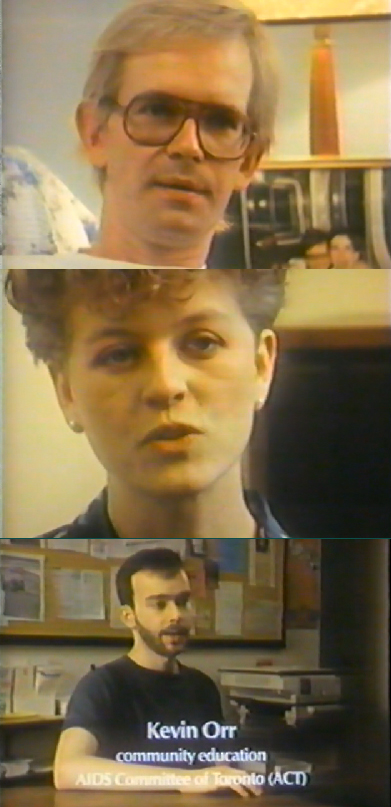 No Sad Songs (1985) – 60 minutes, colour, english
No Sad Songs (1985) – 60 minutes, colour, english
by Nik Sheehan
The oral history transcripts produced by our project primarily focus on the AIDS activist years of the late 1980s and 1990s when it became clear that HIV/AIDS was not just a medical, but political crisis. However, the early years of the AIDS crisis provide context for the emergence of activist responses to the stigma, medical neglect, government ineptitude, and overt homophobia that marked the early 1980s. Nik Sheehan’s No Sad Songs is groundbreaking in that it provides an early look at AIDS crisis in Canada from within directly affected communities.
The documentary was co-produced by the AIDS Committee of Toronto who had obtained a $20,000 grant for making an educational video. As noted by Tom Waugh, No Sad Songs is the first AIDS documentary in Canada and set the stage for a cascade of AIDS activist media for the next decade. Importantly, the production of this documentary modelled the artist-community organization partnership that would be emulated in many HIV/AIDS alternative media projects, most notably the public access cable series Toronto: Living With AIDS (1990-1991). The video premiered at the Toronto International Film Festival in 1985.
The full video is available for streaming from HotDocs here.
For more on No Sad Songs check out Matt Hays’ article in POV Magazine, Doc Classics: No Sad Songs.